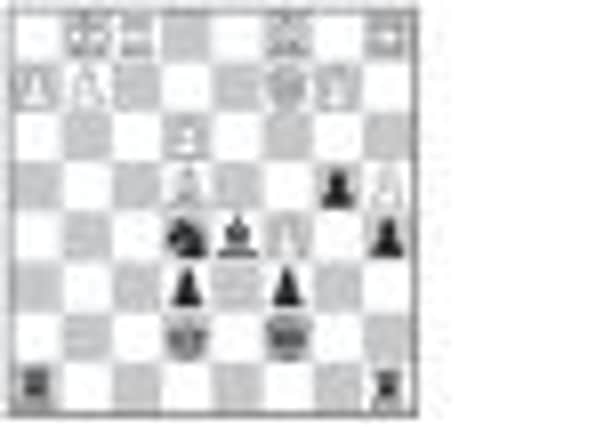Chess - The Scotsman 07/09/12


Western chess was also officially banned by Chairman Mao during the first eight years of the Cultural Revolution (1966-1976), but by 1974 China began to emerge from behind the Bamboo Curtain.
And in 1978, when they made their debut at a Chess Olympiad, the infamous Dutch grandmaster Jan Hein Donner, after lowly-rated Liu Wenzhe beat Margeir Petersson to score China’s first win ever against a titled player, boldly strode up to ask of the Icelandic IM: “How could anyone lose to a Chinaman?”
Advertisement
Hide AdAdvertisement
Hide AdThose fateful words came back to haunt Donner, as only a few rounds later, he himself became the first grandmaster to lose to a Chinaman! Donner was annihilated by Liu Wenzhe in a spectacular game published around the world that announced China’s potential as a force for the future. Liu Wenzhe went on to become his country’s highly influential national coach – and, in 2002, he predicted that China would dominate the chess world within 20 years.
China are already established as a world force in the women’s game, being perennial medal winners at Olympiads, with 17-year-old Hou Yifan their latest in a long line of world champions. And China, who beat two-time gold medal winners Armenia in one of the standout results of round 7 in the open section of the Istanbul Olympiad, could well be on the brink of another breakthrough by being one of the leading medal contenders.
S Movsesian - Wang Yue
40th Istanbul Olympiad (7.2)
Slav Defence
1 c4 c6 2 Nf3 Nf6 3 Nc3 d5 4 e3 a6 5 d4 b5 6 c5 g6 7 Ne5 Bg7 8 f4 a5 9 Be2 h5 10 0–0 Bf5 11 Bf3 Ne4 12 a4 b4 13 Nxe4 dxe4 14 Be2 Be6 15 Qc2 Bd5 16 f5 Bxe5 17 dxe5 gxf5 18 Rxf5 Nd7 19 Bxh5 e6 20 Bxf7+ Ke7 21 Rf1 Qc7 22 Bg6 Nxe5 23 Bxe4 Nd3! 24 Qxd3 Qxh2+ 25 Kf2 Raf8+ 26 Ke2 Rxf1 27 Kxf1 Qg3 28 Ke2 Rh1 29 Bd2 Rxa1 30 Bxd5 cxd5 31 Qh7+ Kd8 32 Kd3 Qg4 33 Qh8+ Kd7 34 b3 Qf5+ 35 Kd4 0–1